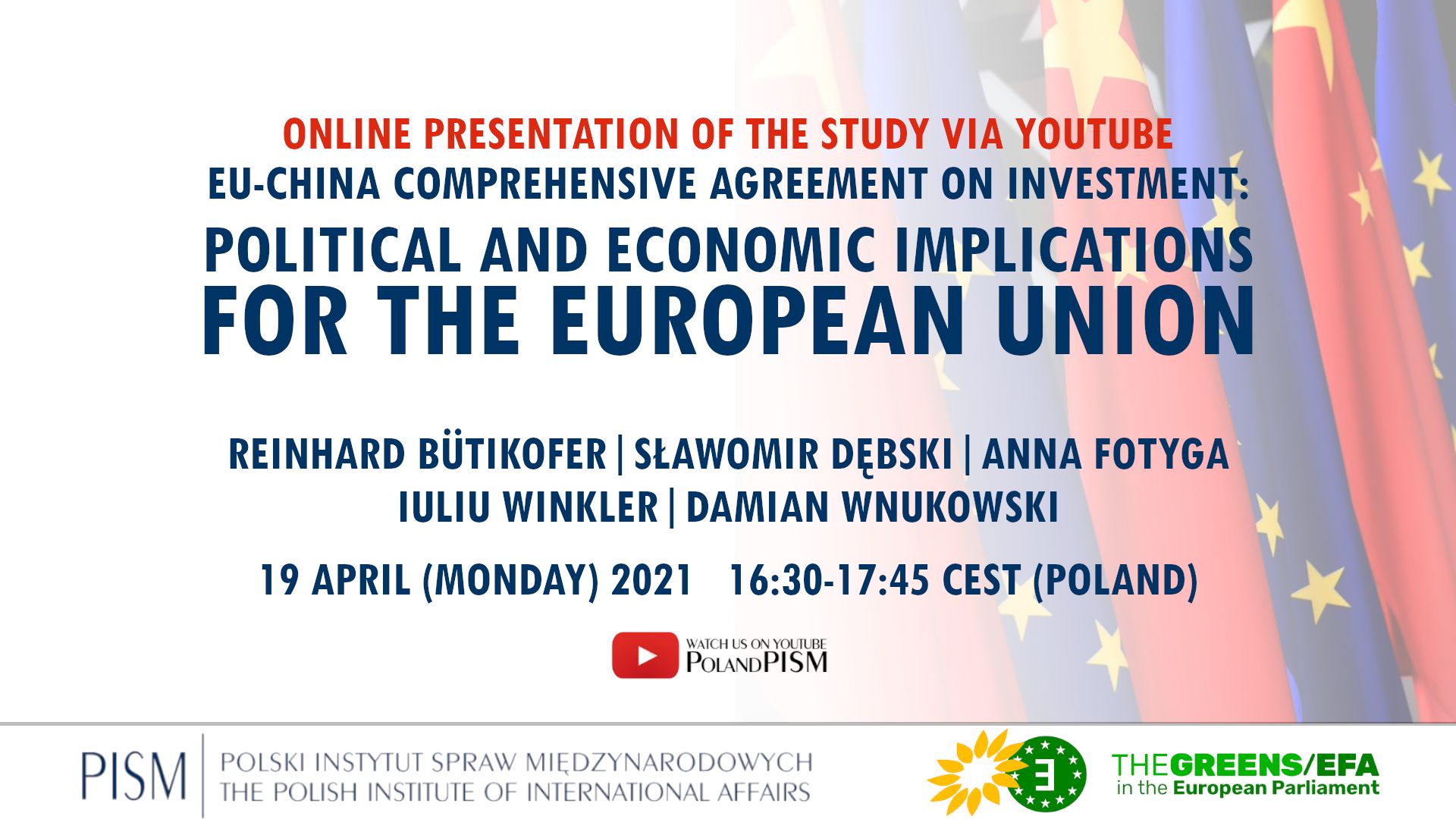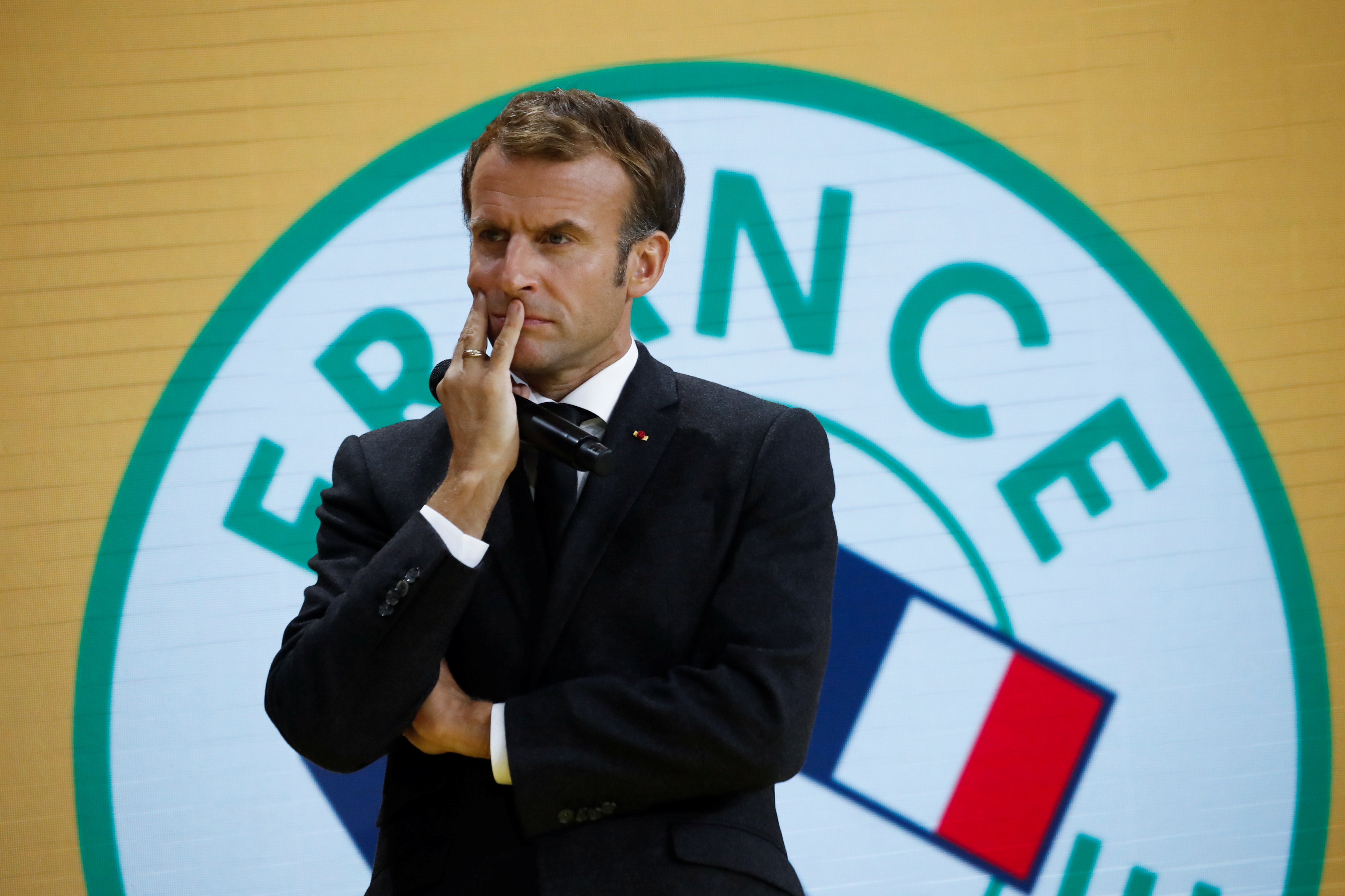The Impossible Equilibrium: France Manoeuvres between Duelling China Policies
France’s policy towards China is based on opposing aspirations. On the one hand, President Emmanuel Macron is trying to maintain the possibility of developing cooperation with China, fearing a bipolar U.S.-Chinese rivalry. On the other, he seeks to protect French and European industries more effectively against unfair competition from China and opposes Chinese ambitions to dominate the Indo-Pacific. According to the French president, reconciling these goals is possible through more effective cooperation within the EU, although France’s aim to reduce the trade deficit puts it in the role of a competitor to other EU Member States. In the context of the Russian invasion of Ukraine, Macron wants to use China as a means of pressure on Russia.
.jpg) BENOIT TESSIER / Reuters / Forum
BENOIT TESSIER / Reuters / Forum
Although France is trying to maintain a balance between cooperation and competition in its contacts with China, the course towards China has become tougher in recent years. This is due to several factors, such as China’s human rights violations against the Uyghurs in Xinjiang, concerns about the resilience of global supply chains, the growing share of Chinese capital in key sectors of the European economy, and China’s interference in France’s domestic politics. France also sees a threat from China to its interests in the Indo-Pacific. As a consequence, the French authorities began to promote more effective actions in the EU to strengthen European strategic autonomy as a response to, among others, China’s rise. The negative trade balance encourages increasing exports to China at the expense of political concessions. This slows down efforts to increase independence from China. The aim of French diplomacy remains to harmonise the strategic approach to China and to avoid polyphony in the EU, especially within the Franco-German tandem.
Bilateral Economic Relations
Despite good figures for French exports last year, the trade deficit with China is widening. In 2021, it amounted to €39.6 billion (€0.7 billion higher compared to 2020 and €7.3 billion more compared to 2019). Imports from China increased by 12.8% year on year to €63.7 billion, which is due to the economic recovery after the pandemic. China is France’s seventh-biggest partner in terms of exports (last year it increased by 37.3% year on year to €24.1 billion). This was influenced by development of the aviation industry, which constitutes about 20% of total exports to China (€4.5 billion). However, the aviation industry failed to return to its pre-pandemic record level, which in 2019 accounted for more than a third of exports (€7.4 billion). The dynamics in the luxury industry (mainly leather goods), agricultural and food, and chemical and pharmaceutical industries are of great importance for the export of goods. French companies have a good position in the wine and spirits market (top supplier), aviation (second), cosmetics (second) and pharmaceuticals (fourth). However, France still has only a third of the German share of the Chinese market.
Imports of industrial products and raw materials (including rare earth metals) from China, used in the aerospace, defence, pharmaceutical, digital and automotive sectors, remain a challenge for France. A vulnerability analysis of the French economy reveals that more than 120 imported products come mainly from outside the EU, including those with low diversification potential. China most often appears as the main supplier. The accelerated ecological transformation announced by Macron in the presidential campaign will not be possible without the extensive acquisition of strategic raw materials, such as lithium, which is used to produce batteries. The government is taking steps to eliminate these dependencies and reduce the risk of supply disruptions. An example is the plan announced in October to launch one of Europe’s largest lithium mines in central France by 2027.
“French Europe” towards China
The sense in France of losing competitiveness and its industrial base to China determines its activity in European politics. France is seeking a common EU position on Chinese 5G technology, trade, and investment and, at the same time, the development of European capabilities in industry and new technologies. This attitude is also influenced by the asymmetry in transatlantic relations. During its rotating presidency of the Council of the EU, France sought to strengthen the strategic sovereignty of the EU, promoting the European socio-economic model and seeking to increase the involvement of the Member States in the Indo-Pacific and Africa region, which has consequences for the dynamics of EU-China relations. France also played an important role in the negotiations of the Comprehensive Agreement on Investment (CAI) between the EU and China, aiming at, among other things, improving the access of European companies to the Chinese market. France shared the European Commission’s optimism and stressed that the agreement was an important step forward.
In the EU, France also favours dialogue with China on issues related to combating climate change, protecting biodiversity, labour rights, and global challenges in the field of health protection. Macron’s approach to dialogue with China is based on the cooperation of EU states and institutions, as exemplified by the current practice of conducting talks with China together with the German side. The decision by German Chancellor Olaf Scholz to pay a visit to Beijing and meet Xi Jinping accompanied by German business representatives met with Macron’s dissatisfaction. The French president supposedly had suggested to the Germans a joint visit. France also criticised the agreement on the sale of a 24.9% stake in one of the transhipment terminals of the Port of Hamburg to the Chinese shipping company COSCO.
China in French Global Politics
France is concerned about China’s increased activity in the Indo-Pacific region where more than 1.5 million French citizens live and about 8,000 troops are stationed. The EU’s Indo-Pacific strategy reflects mainly French interests, although it captures long-term goals in a more limited way than the French national strategy. The “National Strategic Review” issued in November emphasises that the Russian invasion of Ukraine strengthens China and threatens to intensify the China-West rivalry. It should be emphasised, however, that the French approach to the Indo-Pacific is not based on an open confrontation with China. France is primarily seeking to strengthen relations with India as well as Japan and Australia, despite the crisis in relations caused by the announcement of the security partnership between Australia, the UK, and the U.S. (AUKUS). Macron remains a supporter of closer cooperation with Taiwan, fearing an escalation of tensions in the Taiwan Strait.
Referring to the war in Ukraine during the G20 summit in Bali, Macron called on China to take a joint approach to the conflict and expressed his belief that it could play a more important role as a mediator in contacts with Russia. Macron thus tried to use the situation to dissuade China from politically supporting Vladimir Putin and put additional pressure on Russia. This could improve China’s position in relations with the EU, which is crucial in the context of the U.S.-Chinese rivalry, but detrimental to the U.S. and the EU overall. In a conversation with Xi, the French president also emphasised the will to develop bilateral economic cooperation and expressed his willingness to visit China in early 2023. This weakens the credibility of his criticism of Chancellor Scholz.
Conclusions and Perspectives
France will present an increasingly restrictive approach to the transfer of European technologies and will emphasise the need to strengthen protective measures against China’s policies as part of European industrial policy. To this end, Macron may push for more effective support for public-private partnerships. The possibility of working out a common position on China as part of the Franco-German tandem will be important for the further shaping of French policy. This poses challenges for Poland regarding the inclusion of Polish interests in shaping the policy towards China on the EU forum. Outside Europe, France also will seek to strengthen the resilience of partners in key regions, especially in Africa and the Indo-Pacific.
The achievement of these goals will be hindered by France’s desire to support its national interests in economic relations with China, for example, in the aviation industry. The problem that France has, but also other EU countries, especially Germany, is the desire to increase exports to China, which in practice results in increasing dependence on China. Structural changes in industry, the reindustrialisation of the economy, and the diversification of trade partnerships undertaken as part of the energy transformation and the fight against climate change, as well as the search for minimally invasive ways of exploiting natural resources in the territory of the EU, may serve as a solution to this problem. This will gradually make countries independent of imports from China, and in the case of France, may additionally help to reduce the trade deficit with China.





.jpg)